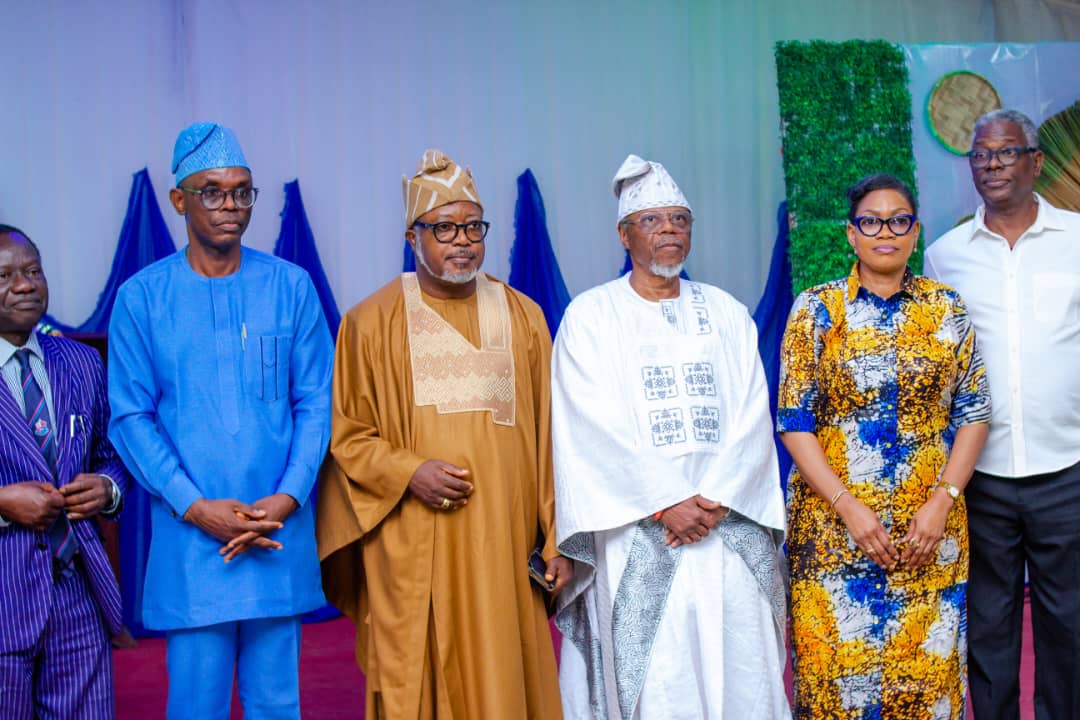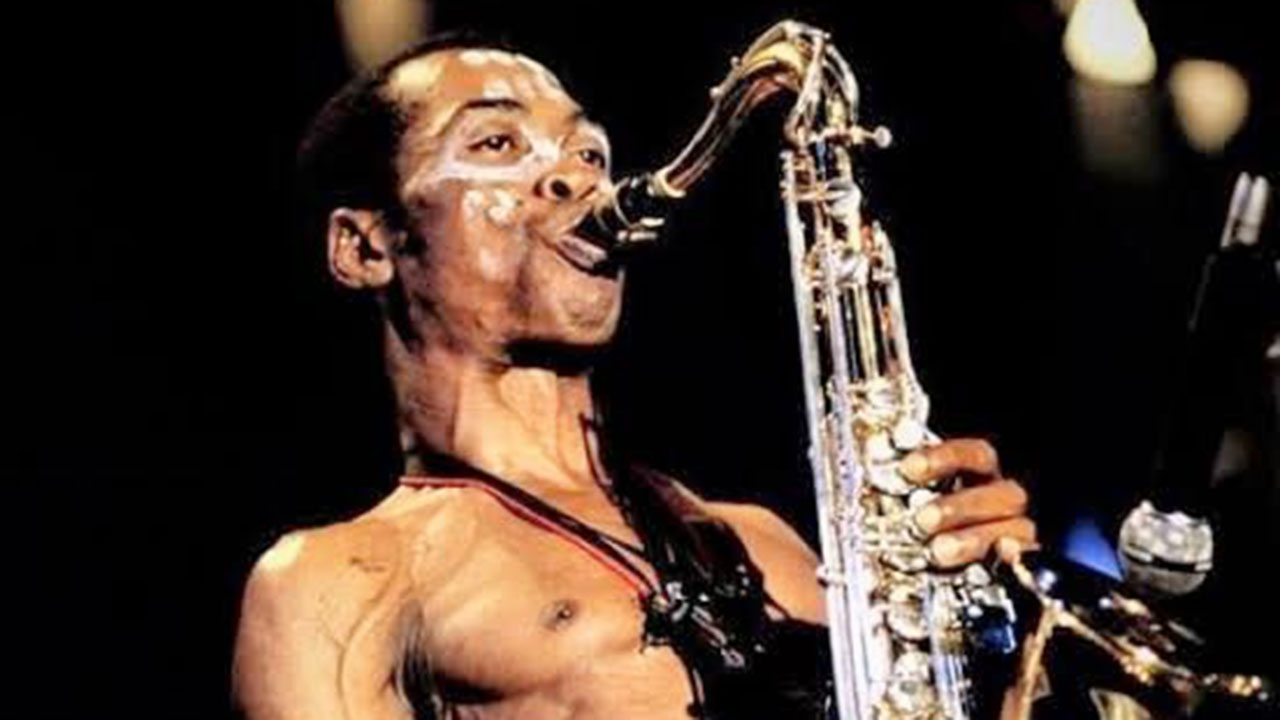 Distinguished professor of African Studies, Toyin Falola, alongside other eggheads, traditional rulers, and members of the public, have called for a deep cultural sense of empowerment while spotlighting the essence of the Yoruba people’s rich history of activism.
Distinguished professor of African Studies, Toyin Falola, alongside other eggheads, traditional rulers, and members of the public, have called for a deep cultural sense of empowerment while spotlighting the essence of the Yoruba people’s rich history of activism.
He made this known while speaking to journalists during the opening ceremony of the Seventh J.A. Atanda Lectures and Conference with the theme: Yoruba Activisms. The event, which was organised by Professor Falola, is being held at the Lead City University, Ibadan. Falola who holds the Jacob and Frances Sanger Mossiker Chair in the Humanities, is a Professor of History, and is a distinguished teaching professor at the University of Texas at Austin.
While presenting the lead paper titled: ‘The Fine Art of Yoruba Activism’, Dr. Lasisi Olagunju, told the gathering that “Yoruba activism has deep historical roots, dating back to pre-colonial times when Yoruba leaders and communities engaged in various forms of resistance against external domination and internal injustice. This legacy of activism has continued through the colonial period and into contemporary times, reflecting the Yoruba people’s commitment to social justice, political autonomy, and cultural preservation.
“Activism among the Yoruba knows no class, gender and age. From peasants to obas and the wealthy, male and female, old and young, the duty to ask questions and demand answers is sacred and sacrosanct. You find this in their proverbs: A i le s’oro ni ibere ori buruku (silence is the foundation of misfortune); eni ba dake ti ara re a ba dake (If you keep quiet when you should talk, your ailment will also stay quiet in your body).
“The central theme of this conference is ‘Yoruba Activisms’. Note the pluralisation of the headword. It is the organisers’ way of saying that among the Yoruba, more than one road lead to their market. The Yoruba culture is a dancing masquerade of many colours. If you want to discover how the Yoruba engage power and principalities, how they fight for justice and fairness, how they rein in abuse from even their own, you need to have more than two eyes and should open all your two hundred ears. As hinted by the organisers in one of the sub-themes of this conference, Yoruba culture is indeed, synonymous with resistance.”
Earlier, Professor Falola stated that “From the Yoruba epistemological standpoint, it is understood that no perfect relationship exists in society. On one occasion or the other, there would be a disorder. In such circumstances, the members of the society are, therefore, empowered to restore order and normalcy. This could be realized in the deposition of traditional rulers and intra-tribal wars, among others. That cultural sense of empowerment is rooted in the idea of resistance to chaos or disorderliness, without which the communities would not forge ahead in the spectrum of justice and humanity.
“The precolonial era marked the formation of notable Yoruba societies, such as the Oyo Empire, among a host of others. During this era, the Yoruba people and communities were governed in accordance with the rules and regulations that were derived from their cultural epistemology. This repertoire of epistemology further determined both interpersonal and intrapersonal relationships. This period, though it marked the Yoruba cultural and political renaissance, also witnessed a series of activism that eventually reduced the dominance of Yoruba empires over the rest of the neighbouring communities as well as the unity and togetherness of the Yoruba people. During this period, we can see how the Old Oyo empire fell due to political activism or insurrections from other Yoruba communities, which eventually led to the rise and dominance of Ibadan and other notable Yoruba communities. There will also be a discussion on what could be regarded as cultural activism, which saw the rebellion of the traditional Yoruba women or their advocacy as better represented.
“One should begin with the fact that the Yoruba had much to contend with during the colonial period, most of which can be subsumed under their continuous resistance to colonial rule. It should be noted that contrary to the popular Western narratives, the Yoruba people had organised themselves into an effective independent nation before the arrival of the British colonists. Just as they had done in other colonies, the British colonial administrators did not improve the political organisation of these empires; they eventually destroyed them to set the stage for colonialism. Among the major tribes or ethnic groups in colonial Nigeria, it can be argued that the Yoruba people were one of the fiercest towards the colonial resistance, if not the fiercest. As a matter of fact, scholarly attention has noted that the Yoruba people were at the centre of nationalist struggles during this period. The reasons for this resistance are multi-faceted: the dominance of colonialism would mean that the cultural heritage of the Yoruba people would be destroyed among a host of others.
“The anti-colonial resistance of the Yoruba people could be witnessed by the series of political and cultural activists in the southwestern landscape. Brewing with nationalistic fervour, the Yoruba people were able to confront the struggles posed by the colonial administration, which, in the long run, culminated in the independence of Nigeria. As has been highlighted above, the Yoruba had many reasons to be wary of colonialism as it was simply the super-imposition of the Western culture on them. Allowing this would mean the loss of their indigenous identity.The resistance of the Yoruba people was initially not enough to make the colonial administrators back down on their policy of the adoption of the English Language as the language of instruction in the class settings. The adoption of the English language as the official status would systemically reduce the usage of Yoruba among the elite, eventually relegating the linguistic repertoire of the indigenous epistemology. It should be further mentioned that language imperialism has been a viable tool of the colonial administrators: to defeat the colonies take away their language. In other words, without language, there is no culture.
“Even when the colonialists were able to foreground their culture through Western education, the Yoruba people, on the other hand, were able to hold on to their culture. This was made possible through effective and efficient informal education. In fact, due to the colonial policy of no mother tongue in the formal education system, the Yoruba people were further reluctant to send their children to schools. Nevertheless, those who received Western education used it as a springboard for what later became anti-colonial struggles. Julius Adekunle notes that Yoruba leaders such as Herbert Macaulay, who founded the first political party in Nigeria, Ladipo Solanke, and Obafemi Awolowo, among a host of related others, were influential in the series of anti-colonial movements during this period.”
Others who spoke at the ceremony praised the efforts of the convener and the organisers, stating the essence of the rich history of the Yoruba people. Among the attendees were the keynote speaker, Dr. Akin Osuntokun, the Orangun of Oke Ila, Oba Adedokun Abolarin, university administrators, scholars and the general public.






